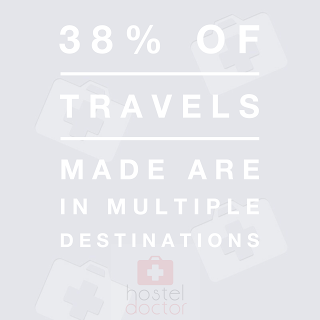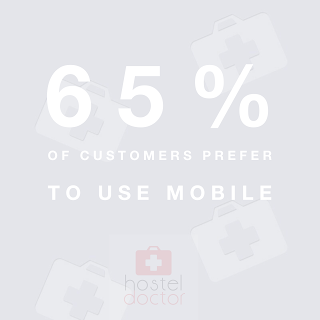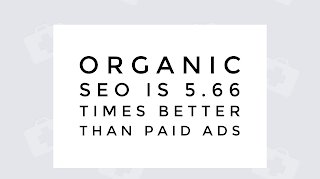Redesigning the Tourism Industry - What happens next?
The health of the global economy has always been inherently correlated with the hospitality sector; holidays go hand-in-hand with wealth, financial buoyancy, and good times. For tourism businesses who have been celebrating the incessant line of millennials on their doorstep, it is now time to re-evaluate, re-design and re-invent. While occupancy plummets and there is a deluge of cancellations - beyond the duration of current lock-downs, we know that a re-evaluation of the industry is the only option. Strategic investment of operational efficiency, revenue generation and cost saving may be what larger companies need to mitigate the downturn, but is it also time for some soul searching on what our business offer really is?
Some macro economical events are impossible to predict, and the exponential growth of travellers in the past decade meant unprecedented growth performances within the industry were followed by huge amounts of optimism. This rapid growth and fragile market which showed accelerated growth but an unsure footing, meant that at some point, the flooded tourism market and bloated airline and cruise figures (which had also lead to complaints about mass tourism), would soon come to an end. Although, we didn’t know how.
Anyone who remembers trying to negotiate with business forecasts
during the Icelandic volcanic ash cloud understands the volatility of tourism
predictions. We have, in some ways, been here before. However, whereas the
industry was hit by cancellations and flight groundings then, we also had
guests who were stranded and filled beds. And, more crucially, no one died. We
have never seen contagion on this scale, nor the more threatening spread (for the
youth segment) of the psychological side: the Panic Virus.
‘Going viral’ has taken on a new (old) meaning, and pandemics, or specifically COVID-19, have also caused a psychological spread of panic which will last much longer than government lockdowns. The ‘Panic Virus’ has caused alarmist reactions for a real virus that is less deadly than many other pandemics, but likely to leave the longest legacy in our lifetime. Although not to trivialise those affected, ill or loss of life, a global shutdown as a response is more down to mental and moral response than actual catastrophe. Given people’s propensity for sensationalist drama and a negative bias, this obsession with pathogens will be around much longer than business shutdowns.
We are confronted with an evolution of human reaction to disaster and presenting them with a business proposition based on a lot of socialising. We also have to contend with increased xenophobia: a huge psychological challenge to overcome on an individual response basis. In all likelihood, we will be fighting against neurosis, prejudice and racism long after we have all contracted the virus.
After Social Distancing
The absolute opposite to what we have been promoting hard for our businesses; people around the world are now being subjected to social distancing, isolation, and heightened xenophobic and racist reactions. The one thing we can hope for this, is that after the mental burden and stress of being subjected to social distancing; people will be desperate to get out there and see the world and unite. Whether they will have been bankrupted in the meantime remains to be seen; but one crisis at a time. As governments take pre-emptive measures to minimise impacts; so must the industry. Apart from deep cleaning and excessive anxiety: what will be left of our community? Unity. This is a time to take stock of business offers, re-evaluate how you operate and create efficiencies within your business model, re-invent ways to generate more revenue, and unite with your network.
A personal response in the age of Intelligence
‘Going viral’ has taken on a new (old) meaning, and pandemics, or specifically COVID-19, have also caused a psychological spread of panic which will last much longer than government lockdowns. The ‘Panic Virus’ has caused alarmist reactions for a real virus that is less deadly than many other pandemics, but likely to leave the longest legacy in our lifetime. Although not to trivialise those affected, ill or loss of life, a global shutdown as a response is more down to mental and moral response than actual catastrophe. Given people’s propensity for sensationalist drama and a negative bias, this obsession with pathogens will be around much longer than business shutdowns.
We are confronted with an evolution of human reaction to disaster and presenting them with a business proposition based on a lot of socialising. We also have to contend with increased xenophobia: a huge psychological challenge to overcome on an individual response basis. In all likelihood, we will be fighting against neurosis, prejudice and racism long after we have all contracted the virus.
After Social Distancing
The absolute opposite to what we have been promoting hard for our businesses; people around the world are now being subjected to social distancing, isolation, and heightened xenophobic and racist reactions. The one thing we can hope for this, is that after the mental burden and stress of being subjected to social distancing; people will be desperate to get out there and see the world and unite. Whether they will have been bankrupted in the meantime remains to be seen; but one crisis at a time. As governments take pre-emptive measures to minimise impacts; so must the industry. Apart from deep cleaning and excessive anxiety: what will be left of our community? Unity. This is a time to take stock of business offers, re-evaluate how you operate and create efficiencies within your business model, re-invent ways to generate more revenue, and unite with your network.
A personal response in the age of Intelligence
As we search for new ways to increase revenue and the
efficacy of our operations, we need to also turn to technology. We are
transiting from the information age to the intelligence age, that huge amount
of data needs to be transformed into insights that can actually be used, to
leverage personalisation and to drive revenue. We need actionable results that
will create a better guest journey. Despite the fact that this information has
been there for a long time (we keep talking about what Millennials and Gen Z
want, but who is actually providing that?) now this laggard attitude from the
industry means stepping up to react to the behaviour of our demographics. Enabling
dynamic individualisation (or to put it simply, creating a personalised user
journey) relies on several lead factors, such as technology platforms, goods
and services that are likely to convert, and data driven offers. If your
business can survive a global pandemic, then every booking will count. The ROI
becomes more significant in these times, but incremental revenue generation will
be necessary to mitigate the losses.
The bottom line is: we don’t know when we can open our doors
again, but we know that what we will be faced with will be different from
before. As we unite to come out of these dark times, we must look at the renaissance
that is possible. After all, one thing we have in common with the virus, is
this is all a journey of evolution. With a Darwinian philosophy applied, we
have to pursue the line that only the best will survive; and strive to be that.






















